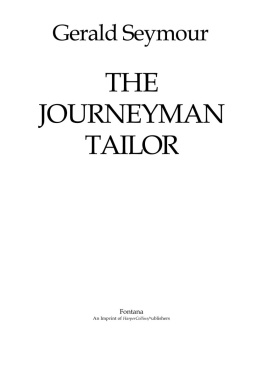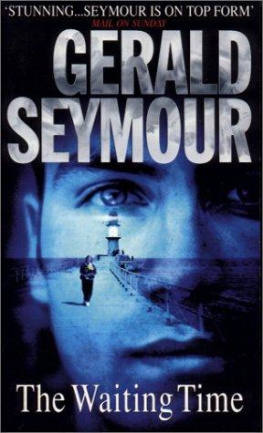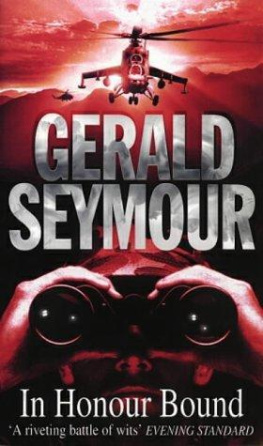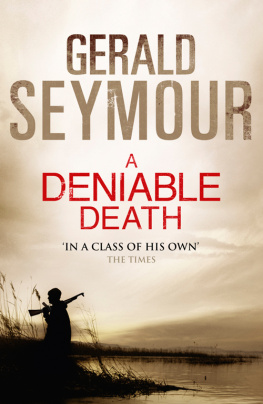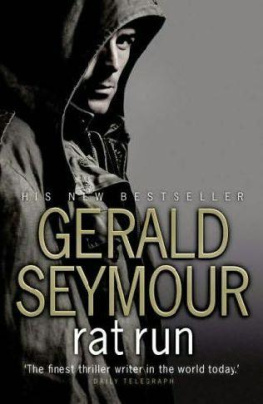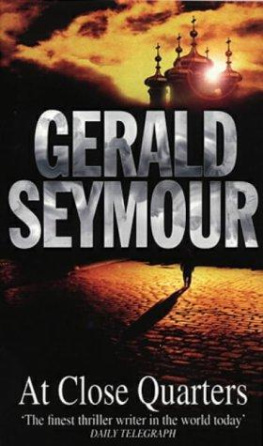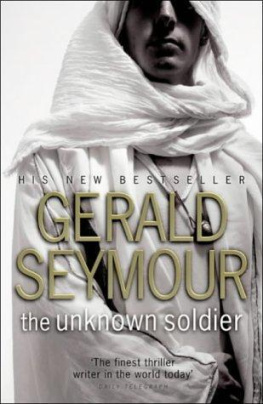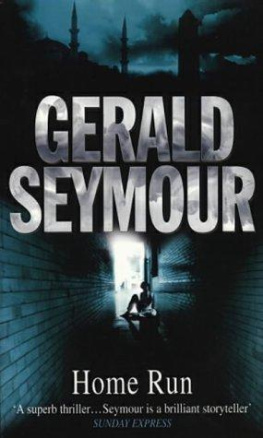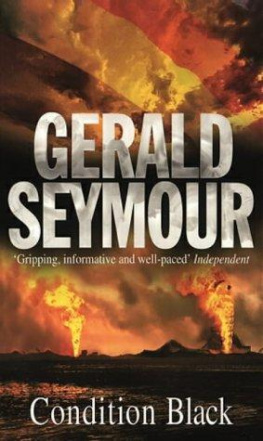Gerald Seymour - The Journeyman Tailor
Here you can read online Gerald Seymour - The Journeyman Tailor full text of the book (entire story) in english for free. Download pdf and epub, get meaning, cover and reviews about this ebook. year: 1994, publisher: Harpercollins (Mm), genre: Art / Detective and thriller. Description of the work, (preface) as well as reviews are available. Best literature library LitArk.com created for fans of good reading and offers a wide selection of genres:
Romance novel
Science fiction
Adventure
Detective
Science
History
Home and family
Prose
Art
Politics
Computer
Non-fiction
Religion
Business
Children
Humor
Choose a favorite category and find really read worthwhile books. Enjoy immersion in the world of imagination, feel the emotions of the characters or learn something new for yourself, make an fascinating discovery.
- Book:The Journeyman Tailor
- Author:
- Publisher:Harpercollins (Mm)
- Genre:
- Year:1994
- Rating:3 / 5
- Favourites:Add to favourites
- Your mark:
- 60
- 1
- 2
- 3
- 4
- 5
The Journeyman Tailor: summary, description and annotation
We offer to read an annotation, description, summary or preface (depends on what the author of the book "The Journeyman Tailor" wrote himself). If you haven't found the necessary information about the book — write in the comments, we will try to find it.
The Journeyman Tailor — read online for free the complete book (whole text) full work
Below is the text of the book, divided by pages. System saving the place of the last page read, allows you to conveniently read the book "The Journeyman Tailor" online for free, without having to search again every time where you left off. Put a bookmark, and you can go to the page where you finished reading at any time.
Font size:
Interval:
Bookmark:
Gerald Seymour
THE
JOURNEYMAN
TAILOR
Fontana
An Imprint of HarperCollins/5 ublishers
All through the day they had left him to his own thoughts, his own moods.
It was as if the soldiers and the policemen were nervous of him and believed they should give him room, as if they thought his building anger might explode against them.
He stood, alone, in the centre of the lane, and all the time he stared up the rising length of the potted road towards the crest of the hill. In the middle of the day, as they had the day before, they had offered him a hot mug of coffee and a sandwich wrapped in clingfilm, and both times he had declined the chance to eat or to warm himself with the drink. It had been a good morning, low dreamy winter sunshine and a sharp wind, enough to dry the heavy oiled coat closed tight across his body that had taken a drenching from the driving rain of the previous day.
The light was falling now and a rain blanket had gathered over the distant mountain summit that was beyond the horizon of the top of the lane. The cold cut through the protection of his coat, and whipped his trouser legs. He shivered. To either side of him, beyond the uncut hedgerows of thorn and holly and hazel, were the rain- soaked fields.
There were song birds in the hedgerows, feasting on berries and grubbing for worms. Away out in the fields, amongst the rushes that grew in the bog land, ignoring the sheep that had cropped the grass short, the black crows and arrogant magpies strutted in their search for carrion. Hovering above the lane, occasionally masked by the low-flying cloud, was the helicopter.
The helicopter had been up all through the day before and all of that day, and for most of the night it had pierced the darkness of the lane with the power beam of a searchlight. The noise of the helicopter's engine blasted out the sweetness of the birds' excitement in the hedgerow, killed the low voices of the soldiers and the policemen.
Slowly he gazed around him. There were young soldiers from a Fusilier regiment kneeling in the water-filled ditches beside the lane, aiming their rifles and their machine guns out towards the further hedgelines that were now blurred by the first rain spits of the squall that rushed to meet them. There were policemen, encased in their all-weather clothing, clutching their clipboards and Scenes of Crime notebooks, and talking with urgency into their radio sets. There were the small white bungalows further up and further down the hillside, with closed front doors, and peat smoke streaming from the chimneys, where the answer of the farmers and their wives and children would be that they had seen nothing and heard nothing and knew nothing. There were two men, huge in the body armour that they wore under their camouflaged combat uniforms, walking back down the lane, and the one passed the other a bright cigarette packet and dropped the cellophane and gold paper wrapping onto the tarmac, and took a box of matches from his colleague. He saw it all and he hated it all.
There was a stirring of the soldiers and policemen in front and behind him.
The cold bit into him. He had wrapped his scarf tight around the lower part of his face and pulled his flat cap down over his forehead, not against the weather but so that his identity and his features would not be seen by the priest who had earlier been allowed to go forward up the lane to whisper the Last Rites and the Act of Contrition into the ear of the body.
It was three days now since the report had reached his desk of the finding of the body. He hated everything that was around him. He knew, of course, the name of the man who lay dead halfway between where he stood and the horizon of the lane. The fields on either side of the lane had long since been swept by the electronics that the military used, and the hedgerows had been pronounced clear of booby-trap explosives and command wires. The helicopter's vantage point ensured that the high ground to the right of the lane and ahead was free of snipers, and now the bomb
men, ambling back down the lane, had passed the body as safe for inspection.
The body was of his man. He had felt it necessary to be there. For the first time in his life he knew the responsibility for the death of a man.
He would not have wished to have been anywhere else.
There was the stamping of feet around him, to inject warmth, and shrill laughter, to pretend that it didn't matter and that life went ahead for the living, and coughing and spat phlegm, to clear the lungs before the walk up the hill to inspect a body that was not wired to a detonator and a pressure plate and explosives.
They had two hundred yards to walk up the lane.
He stepped out briskly. There was an army major leading and two police officers and their photographer were behind him. The rain was in earnest. It fell from the brow of his cap, dripped onto his scarf, ran at the collar of his coat, clung at his trousers, squirmed in his feet.
It was eighteen days since he had last seen his player. A meeting like most of the others of the last year. The dark side of a car park, well away from the front entrance of the hotel, at least a dozen miles from the player's own neighbourhood. The player had been fine, had chain-smoked but that was normal, had talked and even made what passed for a joke - and that wasn't normal. He'd got nothing dramatic, nothing that was going to win the war, but nothing either that indicated any specific anxiety. The player had taken his money. He had slapped his player's back, as he always did, to give him confidence. He had waved the poor bastard away, seen the rear lights of his car head off into the dark.
When they were close to it, almost upon it, he saw the white of the flesh of the shoulder and the glistening black of the dustbin bag.
And then, ten nights ago, he had sat in the car with his colleague for more than two hours, and he had cursed the player for not showing, and cared not to remember that it was the first time in a year that his player had not been on time for a meeting. His temper had been short because of his own fear. Sitting in his car, his weapon loaded and cocked, wondering as the minutes passed whether he and his colleague were compromised and not daring
to wonder aloud whether the player was lost. A ghastly two hours until he had thrown in the towel and got the hell out. And all the drive back he had known in his gut the terrible fear that came from his feeling of responsibility for his player.
There were the fiery white flashes from the camera, startling in the coming dusk. The rain buffeted him. The photographer stepped back.
The body was half on the grass verge of the lane and half in the ditch.
The head of the body, hidden in the dustbin bag that was loosely tied at the throat with orange bale twine, was deep in the ditch and damming the flow of the rainwater. The body was naked to the waist. The trousers were sodden. There was more twine binding the ankles, and the bare feet on the road.
When he needed it, he could get a police or an army uniform. The morning after that failed meeting, he had been with a search party of troops that had raided the player's home. A small terraced house, full of bawling kids, on the edge of a barren housing estate. He had stood by as the lieutenant who led the search party had questioned the player's wife. He knew all about the woman. He knew what she had been given for her birthday, and what she was to have been given for Christmas.
He knew the names of all her children. He knew where the roof dripped, and which central heating radiator leaked. Where was her man now? When was he last at home? When was he coming back? Who had called by for him? Good woman, the wife of the player, a good woman because she thought she was married only to a volunteer in an active service unit of the Provisional wing of the Irish Republican Army, and there was no way that she was going to utter a single word to betray the Organisation. Tough woman, too. She hadn't answered anything, but her eyes that were red from weeping had told half the story, and a sergeant who was a family man had extracted from the seven-year-old out of sight on the stairs that her Da had been taken out of the house fighting and kicking and crying for his life. And that had been the start of the waiting time.
Next pageFont size:
Interval:
Bookmark:
Similar books «The Journeyman Tailor»
Look at similar books to The Journeyman Tailor. We have selected literature similar in name and meaning in the hope of providing readers with more options to find new, interesting, not yet read works.
Discussion, reviews of the book The Journeyman Tailor and just readers' own opinions. Leave your comments, write what you think about the work, its meaning or the main characters. Specify what exactly you liked and what you didn't like, and why you think so.

